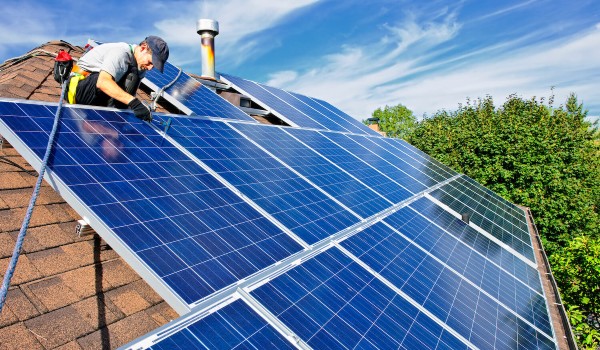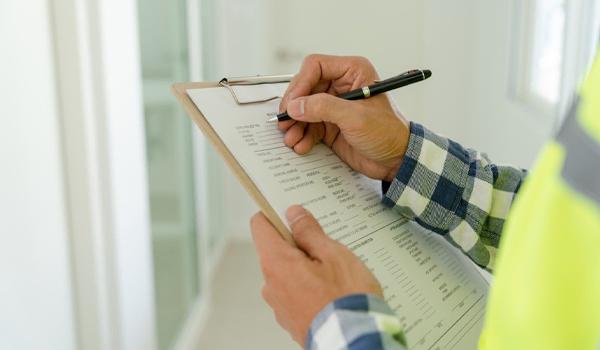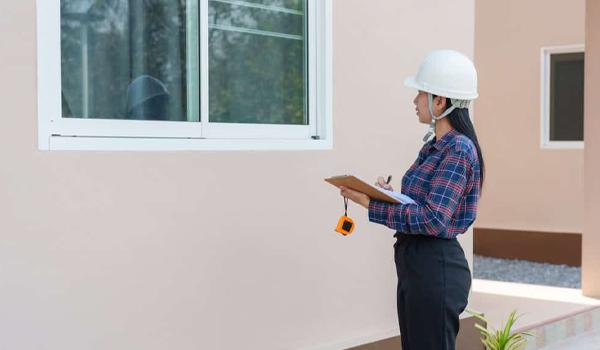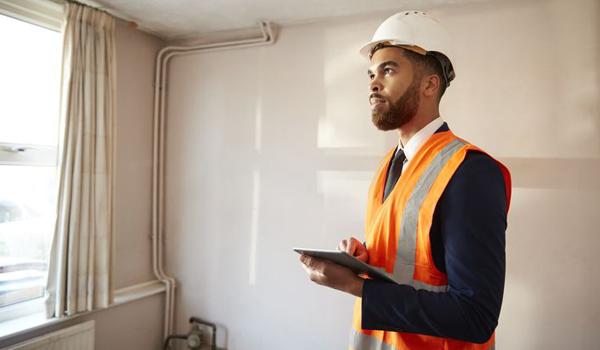Solar Panel Inspection in Toronto, Canada: What You Need to Know

If you have installed a solar panel system for your own house or maybe a commercial building, then you know how expensive the technology can be, and for that reason, it is highly recommended that you have a solar panel inspection once in a while. In this post, we will share with you all you need to know about that topic.
What Is a Solar Panel Inspection?
A solar panel inspection examines the entire solar energy system, meaning the solar panels and all the other components that come with them. The inspection is done to make sure that the system functions properly and has no performance issues, there is no damage, it is safe to operate, and everything has been installed correctly.
Who Needs It and Why
- Homeowners: Inspections ensure the efficiency and performance of the system, and they help maintain warranties and prevent costly future repairs.
- Commercial Property Owners: When it comes to larger systems, it is even more important that inspections are done on a yearly basis to maximize energy savings. Any potential problems hurt the investment, and if the system is covered by insurance, inspections are often mandatory.
- Home Buyers: If you are buying a house that has solar panels, it is best to have the system checked for any malfunctions and to find out about the system’s condition and lifespan and whether it is still under warranty or not. Also, make sure to find out if the system has any remaining payments left.
When Should You Get a Solar Panel Inspection?
There are certain times that professionals recommend you have your solar energy system checked:
- After Installation: After you install the solar panels and all the components, it is good to have them inspected to see whether the installation has been done correctly and if the system is performing as expected. Also, inspection after installation might be mandated by your local authority for grid connection approval.
- Routine Maintenance: Having your system looked at once a year is the default suggestion we hear from solar panel inspection companies. This way, you avoid the hassle of repairs and replacements in the long run.
- Buying or Selling a Home: To make certain that the system functions properly and there is not going to be a need for repairs anytime soon.
- After Severe Weather: Storms, heavy rainfalls, tornadoes, heavy snowfalls, lightning, etc., all have the potential to damage your solar panels and the electrical parts. An inspection after these events is a good idea to find out if anything needs repair.
- Warranty Purposes: Before the warranty expires, you should do an inspection so that if there are any repairs or replacements that need to be done, the costs are covered by the warranty.
- Performance Decrease: If you think there is less electricity produced by the panels lately, either by checking the app or receiving higher bills, you definitely should consider hiring an inspector.
You can also check out Advantages of Home Inspection if you are planning on hiring someone to inspect your house, and don’t forget that if you live in Ontario, you can always count on our own experts at Houmse to do the inspections.
What Does a Solar Panel Inspection Include?

There are multiple facets to an inspection. Below, we will provide a solar panel inspection checklist:
- Visual Inspection
- Cracks, chips, or discoloration on panels.
- Dirt, dust, bird droppings, or debris that can potentially stand in the way of sunlight.
- Corrosion or rust on frames, mounts, and bolts.
- Loose or damaged fasteners on mounting hardware.
- Shading issues from new trees that have become very tall and new tall buildings.
- Water leaks or signs of moisture on panels that are installed on the roof.
- Performance Check
- Checking the amount of electricity produced (kWh) vs. the expected amount under similar lighting conditions.
- Real-time energy production measurement using solar monitoring software or handheld tools.
- Checking the Electrical Components
- Wiring and electrical connections for looseness, wear, or corrosion
- Junction boxes, fuses, and isolators for overheating or defects
- Checking the inverter and ensuring it’s operating properly and efficiently
- Grounding systems to confirm proper earthing and safety compliance
- Voltage and current readings to detect performance drops
- Utilizing Advanced Tools
- Thermal Imaging Using Infrared Cameras: This is to detect hotspots that indicate malfunctioning cells or simply bad connections.
- Using Drones: Drones are used for large-scale systems, solar farms, and areas that are hard to reach.
- I-V Curve Testing: A special tool is used to determine the amount of current (I) and voltage (V) of a solar panel or an entire system to see if they are functioning the way they are supposed to or if there are inefficiencies from underlying problems.
- Detailed Report
In the end, you receive a report that tells you about
- If there is any damage, which components need repair or replacement
- Energy output measurements and system performance
- Recommended repairs, cleaning, or adjustments
- Photos of problem areas (if applicable)
Cost of Solar Panel Inspections in Toronto
We have checked several websites, such as torontofixer.co and sofloox.com, that detail solar panel inspection costs in Toronto, and here are the average prices:
If you are thinking about a home inspection but are not sure if the cost is worth it, Home Inspection Cost will list all the pricing in detail.
Benefits of Regular Solar Panel Inspections

There are quite a few upsides to inspecting your solar panel system on a regular basis:
- Maximum Power Output: Doing regular solar panel inspections ensures that the system is working as efficiently as possible and you are getting as much electricity as possible.
- They Will Last Longer: By checking the system often, you can find small problems and fix them as long as they are small, and this will increase the system’s lifespan and save you money in the future since those problems will never turn into costly repairs or replacements.
- Better Be Safe Than Sorry: Inspections assure you that there are no safety hazards, such as loose electrical connections or damaged components that can cause fire risks or system failures.
- Avoid Warranty Issues: Many solar panel warranties require you to provide proof (inspection reports and documentation) of annual inspections. Not undertaking the task can risk voiding the warranty.
FAQs
1. How often should I have my solar panels inspected?
Once or twice a year is sufficient unless certain events like storms force you to do an inspection afterward.
2. Can I inspect solar panels myself?
You can perform basic visual checks yourself, such as looking for dirt or debris buildup, cracks, discoloration, visible damage, loose mounting parts, overgrown trees, or new shading. However, electrical connections, inverter checks, and system diagnostics should be left to licensed professionals for safety and warranty compliance.
3. Are solar panel inspections covered by warranty?
Typically, no. Most warranties cover repairs or replacements of components. Some companies might offer annual inspection services for extra fees.
4. How long does a typical solar panel inspection take?
Regular residential solar panels usually take 1 or 2 hours to inspect. Commercial solar panel systems and any system that has a large scale will take longer and is dependent on factors such as the number of panels, the size of the whole system, the accessibility of the panels and the components, and whether there is going to be any thermal imaging or drone operations.
5. What happens if my solar panel system fails an inspection?
The inspector(s) will give you a detailed account of the issues they encountered and repair or maintenance recommendations. Minor problems like loose wiring are usually taken care of on the spot, but more serious issues require you to hire other professionals who will check the report and fix anything that needs fixing.
If you care for the safety of your home, Ceiling Inspection is another read we recommend.
Final Thoughts: Keep Your Solar Investment Performing at Its Best
A once-a-year solar panel inspection is a very good idea if you are looking to keep the efficiency and overall conditions of your system at their best. Avoiding the task can lead to major problems down the line that will cost you way more compared to a simple inspection a year.
- In this post:
- What Is a Solar Panel Inspection?
- When Should You Get a Solar Panel Inspection?
- What Does a Solar Panel Inspection Include?
- Cost of Solar Panel Inspections in Toronto
- Benefits of Regular Solar Panel Inspections
- FAQs
- Final Thoughts: Keep Your Solar Investment Performing at Its Best



